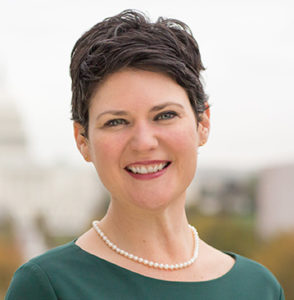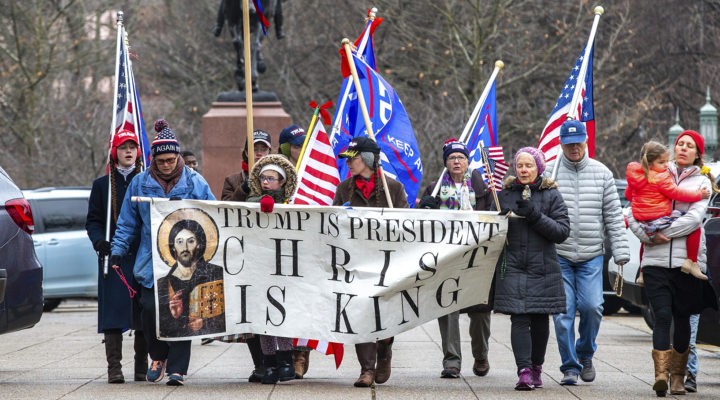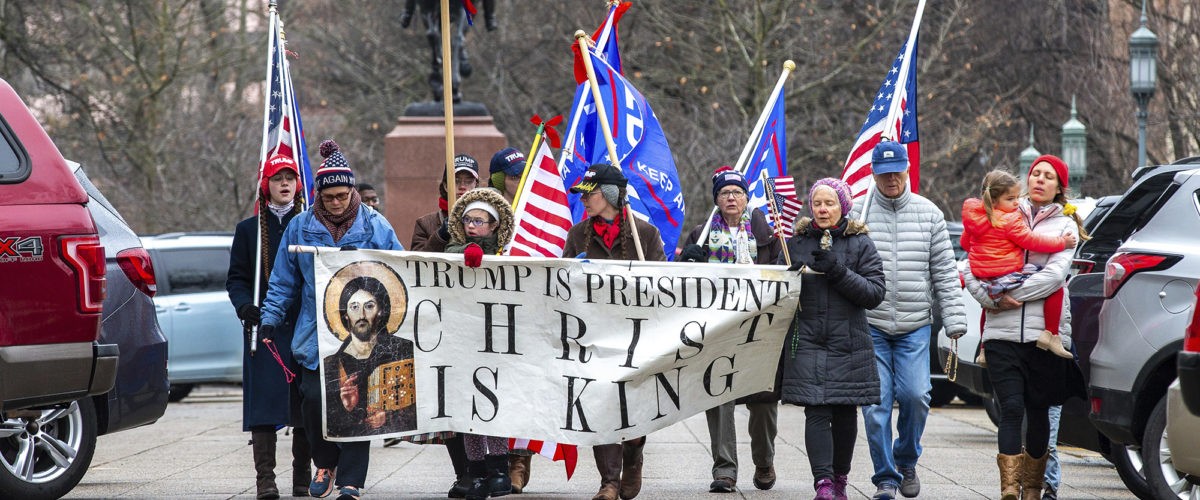Increased faith-based advocacy is needed to counter Christian nationalism and other anti-democratic forces that sparked the Jan. 6 insurrection and that seek a theocratic future for the nation, according to Amanda Tyler, executive director of Baptist Joint Committee for Religious Liberty.
The appeal for such advocacy doesn’t apply only to churches and other religious groups, but also to individuals who are needed to promote and defend democracy, social justice and the religious freedom guaranteed in the U.S. Constitution, Tyler said in her June 25 keynote address to the virtual gathering of MMBB, the financial services partner to the American Baptist Churches in the USA.

Amanda Tyler
“Each of you has the power to be faithful advocates in your own right. … These destructive impulses require a strong and united response; not ideological conformity, but a faithful engagement in the public square,” Tyler said during the gathering that was part of ABCUSA’s June 24-26 online Biannual Mission Summit.
In her address, Tyler offered a sketch of active threats to religious liberty and political freedoms, including those who want a government in which political and religious authorities are the same, and in which the members of minority religions are treated as second-class citizens, imprisoned or killed. Examples of such theocracies can be found around the world, she said.
“This approach was rejected at the beginning of our country,” Tyler said in citing Article VI of the Constitution barring a religious test for public office. While the founding contract was flawed in its support of slavery, “the one thing we did right was to separate religion from equal citizenship.”
But there are those who would like to undermine those principles, she warned. “We are seeing efforts to blur that line, to legislate Christian values and morality or just advance religiosity in general. This is harmfully divisive and should be soundly rejected as betraying our constitutional commitments and to practice the Golden Rule of religious freedom.”
Another threat emanates from those who have replaced God and faith with politics, an approach that fosters ideological fragmentation, political absolutism and high-stakes opposition to comprise, she said.
The Jan. 6 insurrection at the U.S. Capitol, while laced with religious symbols and rhetoric, was largely an example of this impulse, Tyler said, explaining that the Christian symbols “appear to me to be just window dressing for a particular political stance.”
“These are not exclusively religious values, but religious people have a special responsibility to engage with them.”
People of all faiths and none are thus needed to participate in public advocacy around legislative issues dealing with affordable health care, voting rights, economic and racial justice and a pluralistic and equal society, Tyler said. “These are not exclusively religious values, but religious people have a special responsibility to engage with them.”
BJC seeks that engagement through participation with organizations such as the Washington Interfaith Staff Community, which represents more than 70 national religious groups that cooperate on issues such as health care, immigrant rights and international humanitarian assistance, she said.
Another is Faithful Democracy, which unites organizations working for a constitutional approach to faith in public policy, including voting rights.
“We rarely work alone,” she said of BJC. “We are in coalition with other groups that care about these issues from different religious and secular perspectives, but all united in shared priorities.”
Individuals may act in similar ways by engaging with elected officials and by getting involved with BJC and other organizations already engaged in the work, she said. “Engagement in the public square can also strengthen and deepen our own religious understandings and convictions.”
The result of such advocacy can be deeper devotion to the faith, she advised. “By getting political and applying our faith to matters of public concern, we can draw even closer to Jesus.”
Related articles:
Interdenominational panel warns of extreme danger of Christian nationalism
What does Pelagius have to do with Josh Hawley and white nationalism? | Analysis by Matt Dodrill
Separation of church and state looks different through the eyes of minorities, BJC speaker says


